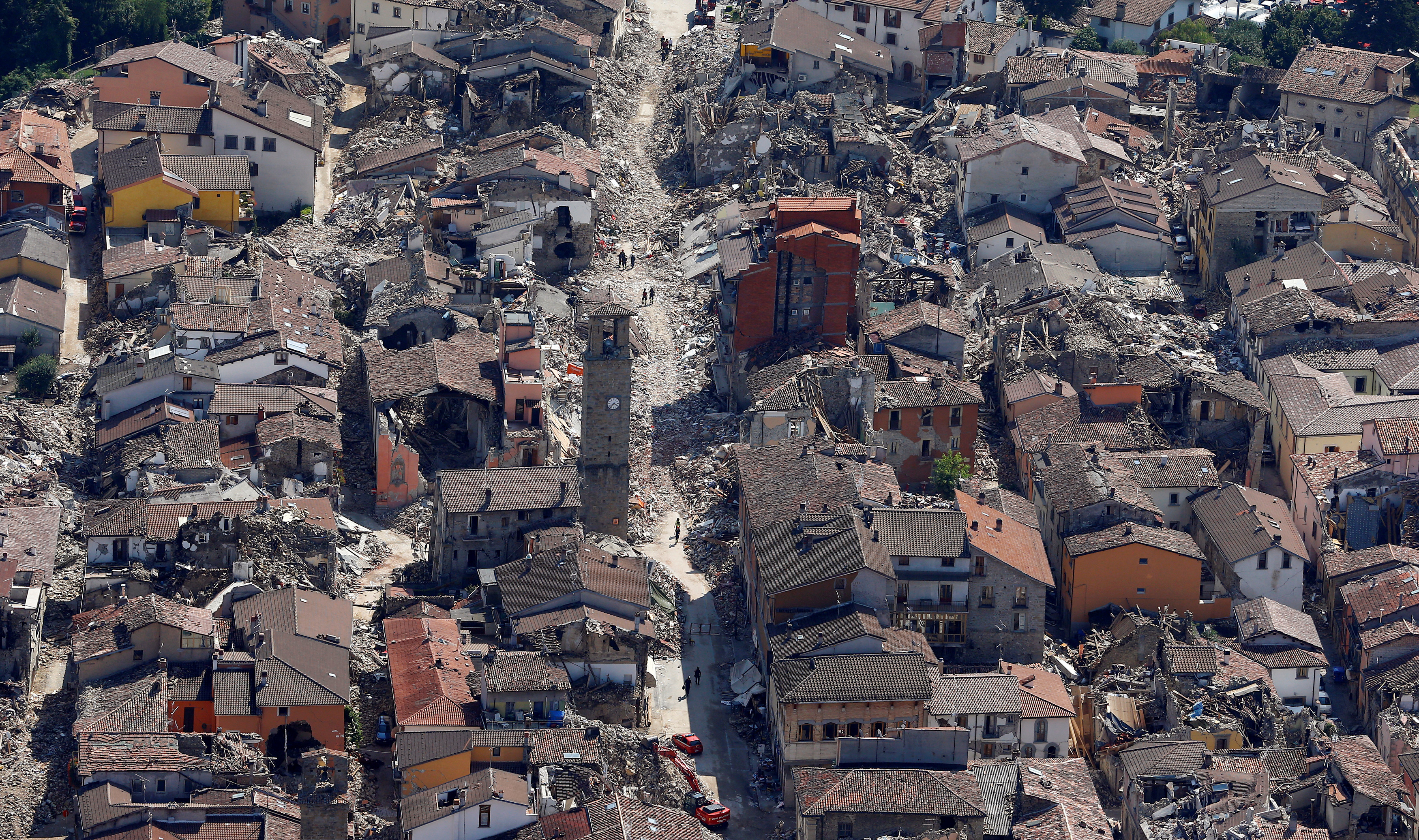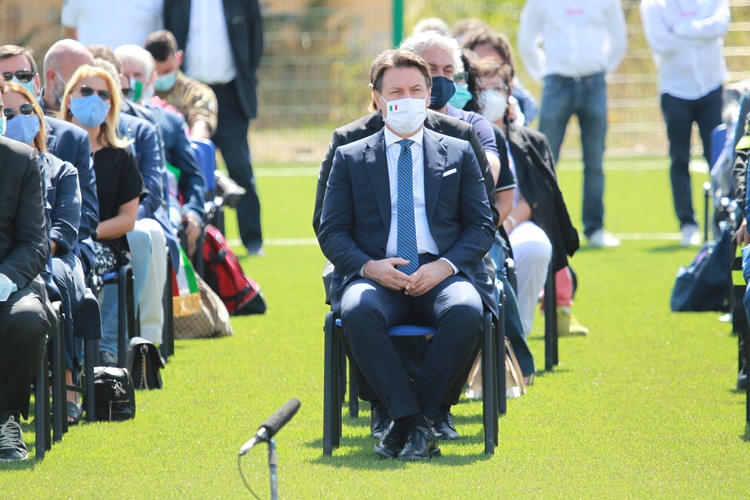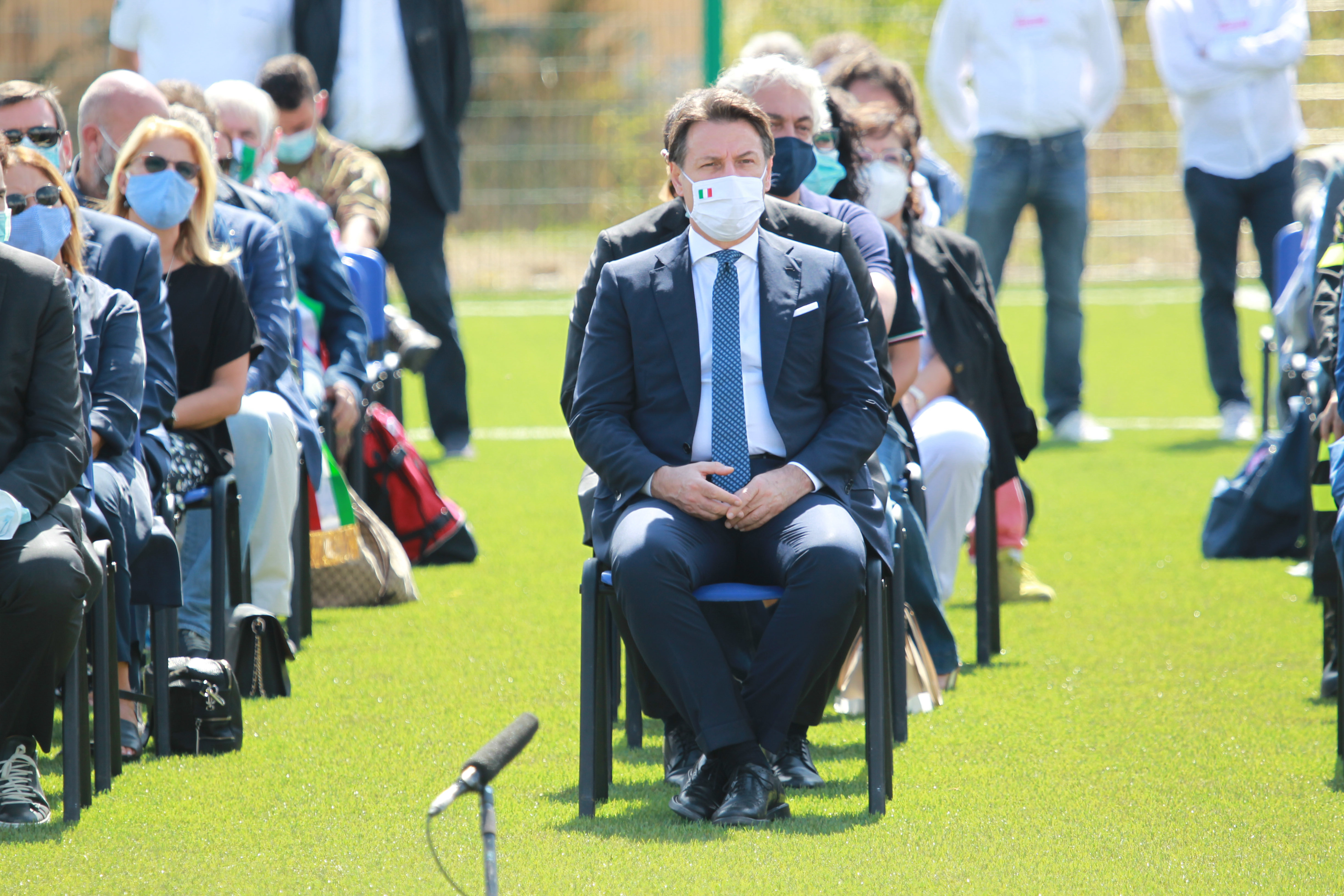The 6.0 magnitude quake claimed 299 lives when it razed much of Amatrice and pummelled the neighbouring villages of Accumoli and Pescara del Tronto early on August 24, 2016.
It was felt as far away as Rimini, in the north-east, and the southern city of Naples.
On Monday, church bells sounded at exactly 3:36 am, the moment the quake struck the sleeping villages, as the names of the dead were read out.
In Rome, Italian President Sergio Mattarella voiced his “solidarity with all the victims and their families... on a dramatic night which also displaced more than 40,000” people whose homes, work places or schools were hit.
“The work of rebuilding the destroyed localities is unfinished and continues with difficulty,” Mattarella said, adding that bureaucracy was mainly to blame.
In a press release, he called on the Italian state to “demonstrate determination and efficiency at all levels”.
“In the spirit of solidarity – the foundation of our Constitution – the Republic must prioritise the fate of the most unfortunate citizens struck by natural disasters,” he added.

A view of Amatrice following the devastating quake in 2016. (Photo: AAP)
Italian daily La Repubblica recently published an official report saying that as little as eight per cent of rebuilding work had been done in the last four years.
The majority of work still in the pipeline “is still far from being completed or has not even started”, the paper reported.
“To date, only 186 public interventions have been carried out, out of the 2347 planned, that is to say a miserly 7.92 per cent,” the article read.
Private projects, however, were reportedly further along.
Examples of slow progress include schools, where out of 250 planned projects, 75 have not yet started and 144 others were still in the planning stages.
None of the nine hospital projects and none of the 126 municipal projects have begun, the paper added.
Regarding housing, “only seven out of 311 rebuilds have been carried out”.
The quake devastated a huge area, damaging homes, schools, hospitals and churches and costing an estimated €23.55 billion.
Some 11,000 requests for public aid for rebuilding had been filed and €526 million have been granted by the Italian government.
This year, several commemorations were planned on site in the presence of Prime Minister Giuseppe Conte, but were limited in size due to the coronavirus pandemic.
Conte said money from the EU COVID Recovery Fund, of which Italy has been given the biggest chunk, will help spur reconstruction starting next year.
With ANSA












